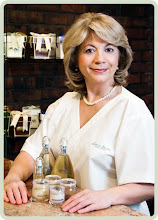An Eye-Opener on Coffee: It’s Not Just for Drinking Anymore
The latest scientific research on coffee not only gives latté lovers reason to celebrate—it’s uncovered a potent new plant-based skincare ingredient.
You may already know about coffee’s high antioxidant levels—which are equal or higher than most fruits. Researchers believe the power of antioxidants to repair damaged cells is why coffee drinkers appear to have a lower risk of heart disease and skin, liver, and colon cancer. According to a study by Harvard Public Health and Brigham and Women’s Hospital, one of coffee’s antioxidants, quinine, can also help fight diabetes by increasing the body’s insulin resistance and regulating glucose metabolism.
But if you think a cup of decaf is a safer, healthier way to raise your daily dose of antioxidants, recent research on caffeine may surprise you. Studies have shown that in moderate doses, America’s favorite pick-me-up isn’t just harmless—it’s actually good for you. In fact, one of coffee’s cancer-fighting antioxidants, caffeic acid, comes from caffeine. That’s why caffeine is starting to pop up on sun block labels. In addition to repairing cellular damage, caffeine also appears to reduce the risk of Parkinson’s disease, control asthma attacks, cure headaches, and even prevent cavities!
Many of these health bonuses are linked to caffeine’s effect on inflamed arteries and veins. By constricting blood vessels, caffeine decreases inflammation. A diuretic, caffeine also reduces swelling by flushing excess blood and lymph from skin tissue. This multi-action combination of properties explains the growing use of caffeine in cellulite and facial treatments to boost performance.
Mounting scientific data and years of hands-on experience have convinced me that caffeine helps repair and rejuvenate the thin, delicate skin around our eyes. This area is the first place to show the damage that age, environmental toxins, and poor health habits can do to our appearance. For the red, puffy eyelids and dark circles that can afflict young and old alike, this powerhouse ingredient provides the perfect all-in-one solution. Derived from pure Colombian coffee, the caffeine in myLaVie Organique™ Eye Cream meets my exacting Quality Standards. This pure plant-derived extract works in synergy with my proprietary blend of certified organic and natural botanical ingredients to nurture and revitalize the eye area. It’s a balanced health drink for your skin that will bring a smile to your face when you see the results.
Labels: antioxidants, facial treatments, inflammation, natural skincare, plant-based

